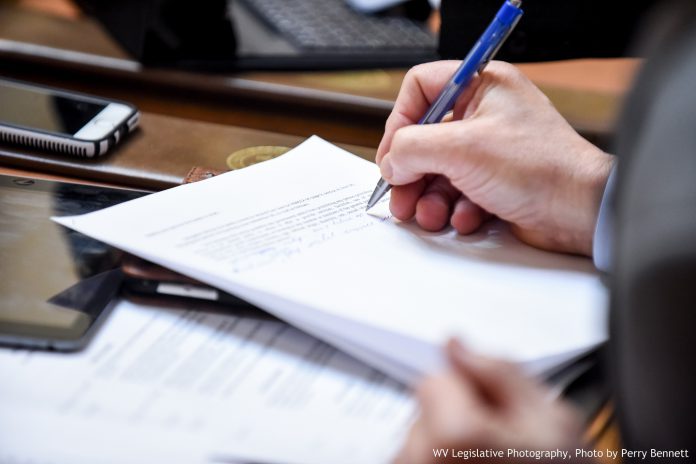A bill that would change the requirements for vehicle inspections from annually to every two years advanced through House Finance Thursday evening.
In addition to requiring vehicle inspections every two years, under House Bill 4639, the price of an inspection sticker is increased to $6 and the maximum cost of inspection is increased to $17. These changes would take effect January 1, 2021. The committee substitute adopted by House Finance also added in a provision to include antique cars and motorcycles into the two-year requirement.
Committee counsel explained that funding that goes to the state police would be whole; however, the amounts for the dealers would stay the same.
Delegates who supported the bill cited cost savings, more flexibility, and debated safety concerns, saying statistics the committee heard were from states that eliminated the inspection requirement.
“We’ve come a long way with this bill,” Delegate Zack Maynard, R-Lincoln, said. “It went from total elimination to three years, to a certification, and not two years. Another reason I support the bill is that the testimony we have heard was for elimination of the sticker. We are not eliminating the sticker.”
Delegates who opposed the bill cited safety concerns, that there would be more accidents attributed to bad brakes and tires, and that the bill would negatively affect small businesses that conduct the inspections.
“This is well-intended but poorly executed,” Delegate Mick Bates, D-Raleigh, said. “This not only includes personal vehicles but commercial vehicles as well. While it may not be planes and trains, it is everything else on the roads. This is a step in the wrong direction as far as safety is concerned. “
The committee advanced the bill in a 14-10 vote.
Another bill the committee advanced a bill that would allow county school boards to adopt a teacher leader framework for teacher induction and professional growth. Under House Bill 4804, there is a retention of $100,000 of school aid funds for these systems each year for a five-year period for the department of education to use to assist county school boards in designing and implementing this system.
The committee heard testimony that teachers are more likely to leave the profession within the first five years of employment, which is a national problem. The bill aims to support teacher induction and professional growth.
The committee also advanced an originating bill that would update the North American Industrial Code. Under current law, businesses that process natural gas are allowed to receive salvage value on real property and are able to get certain credits. The qualification for these credits is if they hold an NAIC number; however, the statute does not reflect the proper number because the NAIC has changed.
The bill aims to update the statute so businesses that process natural gas can have correct NAIC code references and continue to receive tax benefits.
House Finance also advanced House Bill 4665, which would reduce the amount of the rebate from state purchasing cards going to the Purchasing Improvement Fund from 15.5% to 10%. The bill would create a transfer of 5.5% to the Entrepreneurship and Innovation Investment Fund from fees generated from the state purchasing card program.
The Entrepreneurship and Innovation Investment Fund was established from House Bill 2550 last year; however, there was not a funding mechanism or stream that went into that fund from state money. An initial boost from secondary rebates went into the fund at $500,000.
There are three phases to the fund—Phase 0, which is capped at $2,500 and receives no federal funding; Phase 1, which is up to $100,000 and has a reciprocal federal matching fund; and Phase 2, which upon completing a Phase 1 project, companies can apply for the second phase, which is capped at $100,000 and has up to five different grants available.
Businesses must apply for matching grants under the Small Business Innovation Research Fund before they are eligible for a matching grant.

